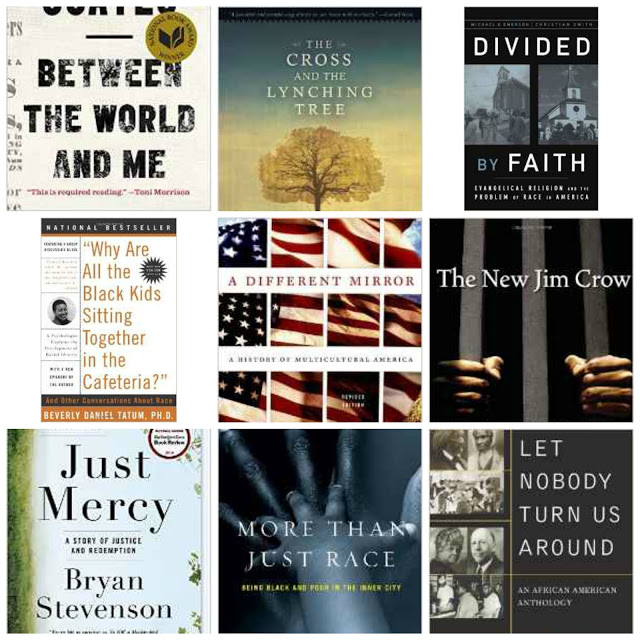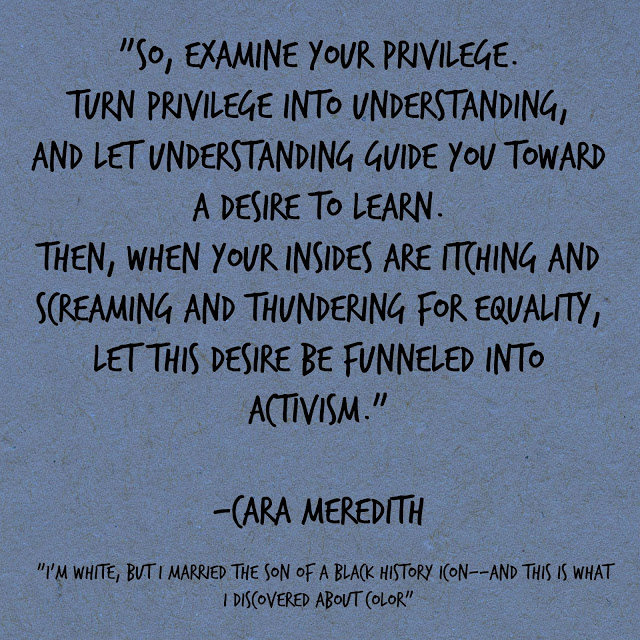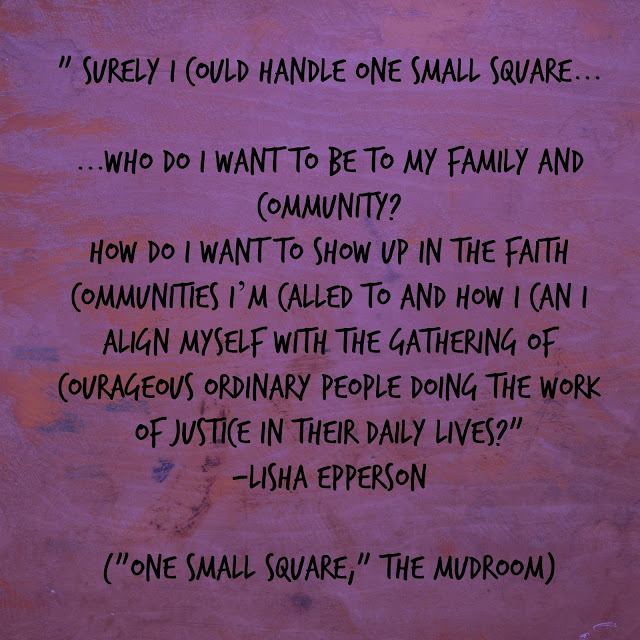By Tasha Burgoyne | Blog | Twitter | Facebook
(This post first appeared on Tasha’s site Coffee and Kimchi in July of 2016, but is still very relevant now. She shared it with me recently and agreed to republish it in this series. Be sure you head over and check out her site!)
My Existence: Formerly Against the Law
50 years ago, the country I was born in had laws in place to prevent my birth. With a righteous-sounding title like “The Racial Integrity Act,” racism was formalized and normalized in the United States of America, and up until 1967 there were still 15 states that had anti-miscegenation laws.
Miscegenation means, “the interbreeding of people considered to be of different racial types.” Does that make anyone else want to cringe? So, it was illegal for a white person to marry a non-white person.
The first time I read about The Racial Integrity Act of 1924, I cried. Evil, oppressive and dark, the laws were similar to the Nuremberg Laws in Germany, “laws to protect German blood and honor,” that led to the Holocaust itself. Some of the very same ideology and blatant racism was written into the American laws to “protect whiteness.”
I find it ironic that some of America’s beloved Hollywood films throughout history have made a point to further vilify some villains on screen with thick German accents (and this still happens today). Yet, America had Nazi-like laws in place long after the Holocaust.
It wasn’t until June of 1967, because of Loving vs. Virginia, that the Supreme Court decided to remove all existing laws that prohibit interracial marriage. My parents were married in 1971 in California. While it had been legal in California since 1948, it’s hard for me to comprehend that in many states, just 4 years prior, my parents’ marriage would have been illegal.
Can you imagine for a second what it feels like to know that there were laws in your own country to prohibit someone like you from existing?
100% Both
As a mixed person, I am not one or the other; I am both. 100% both. I have spent time wishing I was one or the other. I have spent years ashamed of one or the other, or the fact that I was both.
Today, I refuse to linger in that division. No matter what laws have been removed or put into place, and though progress has been made, reconciliation is the only thing that I believe will bring true, lasting change. In the simplest terms, reconciliation starts with moving towards different in honesty and humility. As a mixed person, my own personal reconciliation has had to begin with moving towards the different inside of me.
This takes on even more significance when I consider that mixed race individuals are the fastest growing demographic in the U.S. How will we model reconciliation for future biracial generations? What example will they give an even more mixed generation that follows them?
After the horrific events that took place in our country last week, I realize that I am no expert on racism. I can’t speak to the black experience as if I know what my African American brothers and sisters have long endured because of institutional racism. However, I can speak-up for the value of life and the fact that black lives have been under attack and oppressed by systemic racism for as long as our country has had a history.
I can’t speak to what it must feel like to be a white police officer in our country, working under the weight of reverse racism. However, I can speak-up against reverse racism and the fact that it has attacked our nation by taking the lives of those who serve Americans in one of the most courageous ways. What I have personally experienced as a biracial Asian American pales in comparison to these recent heart-breaking tragedies and the people connected to them.
But here’s the thing. What took place this past week isn’t a new thing. The evil of racism has been here, laying right under the surface of everyday life, kept alive in part, because so many of us avoid moving towards different and the responsibility of reconciliation.
I have been told that I should just let little things go when it comes to racist remarks or incidents. People have said “most aren’t that way,” or, “they didn’t really mean it like that,” as a way to brush off seemingly little offenses. I have tried those responses and I wish they worked. They don’t work. Brushing things off in order to avoid the hard work of reconciliation feeds and waters the thick, growing weed of racism.
A “good” kid made slanted eye faces at me when I was little, and an entire generation later, my 2nd grader tells me that this has happened on his elementary school playground. I am not sure what hurts me more: my personal memories of a classmate pulling the corners of his eyelids back and laughing, or hearing that my son has experienced the same thing.
I have heard careless comments about the foods I grew up eating, foods that come with the stories of my mother’s upbringing and culture. I’ve watched people turn their noses up in disgust at particular Asian foods until it became trendy; those same people later ended up in watered-down “ethnic” restaurants taking selfies, while remaining blind to and unapologetic for their duplicity.
I have tried to understand how white (and Christian) friends can laugh while watching A Christmas Story and claim it to be their favorite Christmas movie, when it has a deliberately racist scene in it. I was introduced to this movie at a church youth group gathering of all places. Did you know that the Asian actors in the Chinese restaurant scene didn’t even know they would be singing mispronounced Christmas carols? Asian Americans are not a comedic prop for the larger majority of Americans.
It wouldn’t be right if I just listed the racism I have experienced from the majority white culture. Other Asian Americans have told me that I’m not a real Asian. I’ve been uninvited by a group of Korean Americans because I couldn’t speak Korean. And beyond our country’s borders, I have seen racism between a lot of different colors. In Asia, I have been told that I am too dark-skinned to be Asian. And when I was 7 years old, my sister and I were spit on by a group of teenage boys on a sidewalk in Seoul, because we were mixed.
Facing Racism and Choosing Reconciliation
Racism is everywhere. Even in me. I have seen it in my own thoughts, in my silence, in my reasons and in my own words. Until you and I are willing to face and admit our part in keeping racism alive, it will continue to linger and lay under the surface in our hearts, families, communities, churches and future. Do not believe the lie that racism can be covered up or contained. Do not believe that by segregating ourselves, we will stay safe and keep our hearts sanitized from the sin of racism.
As a Christ-follower, ignoring and avoiding the broken place of racism isn’t an option. As an American mother, I refuse to model silence, fear and separation. I intend to make it a priority to teach my sons what it means to stand up against racism and move towards reconciliation.
As an adoptive mother, I refuse to raise my Korean daughter with the marching orders to assimilate and keep the majority or minority boat from rocking. I intend to teach her to celebrate and move towards the different in her own identity and in the world.
As the daughter of a white man and wife of another white man, I will not encourage reverse racism as an acceptable or better form of racism. As a follower of Jesus, I am committed to move towards the different because Jesus modeled this. Not only did Jesus choose a minority and oppressed people to be born into and live among, He consistently moved towards different in his day. He has promised that he is preparing a place for His people: a global and colorful people of every nation, tribe, and language.
If God wanted us to be colorblind, he wouldn’t have created the visible beauty and diversity of color among us. He made us to notice our racial differences, celebrate our racial differences, see and worship Him TOGETHER in those differences.
About Tasha:
 Tasha is a wife, a mama, a hapa and a french fries connoisseur. She’s a writer and a dreamer, a coffee-drinker and a kimchi-eater. She was made to walk where cultures collide on both dirt roads and carefully placed cobblestone streets. Jesus is her heartbeat. Follow her on: Her Blog | Twitter | Facebook
Tasha is a wife, a mama, a hapa and a french fries connoisseur. She’s a writer and a dreamer, a coffee-drinker and a kimchi-eater. She was made to walk where cultures collide on both dirt roads and carefully placed cobblestone streets. Jesus is her heartbeat. Follow her on: Her Blog | Twitter | Facebook
New to the Series? Start HERE (though you can jump in at any point!).

During the month of March, 2017, I will be sharing a series called 31 Days of #Woke. I’ll be doing some personal excavating of views of race I’ve developed through being in schools that were under court order to be integrated, teaching in an all black school as well as in diverse classrooms in Chicago and my experiences of whiteness living in Uganda and China. I’ll also have some people of color share their views and experiences of race in the United States (I still have some open spots, so contact me if you are a person of color who wants to share). So check back and join in the conversation. You are welcome in this space.










